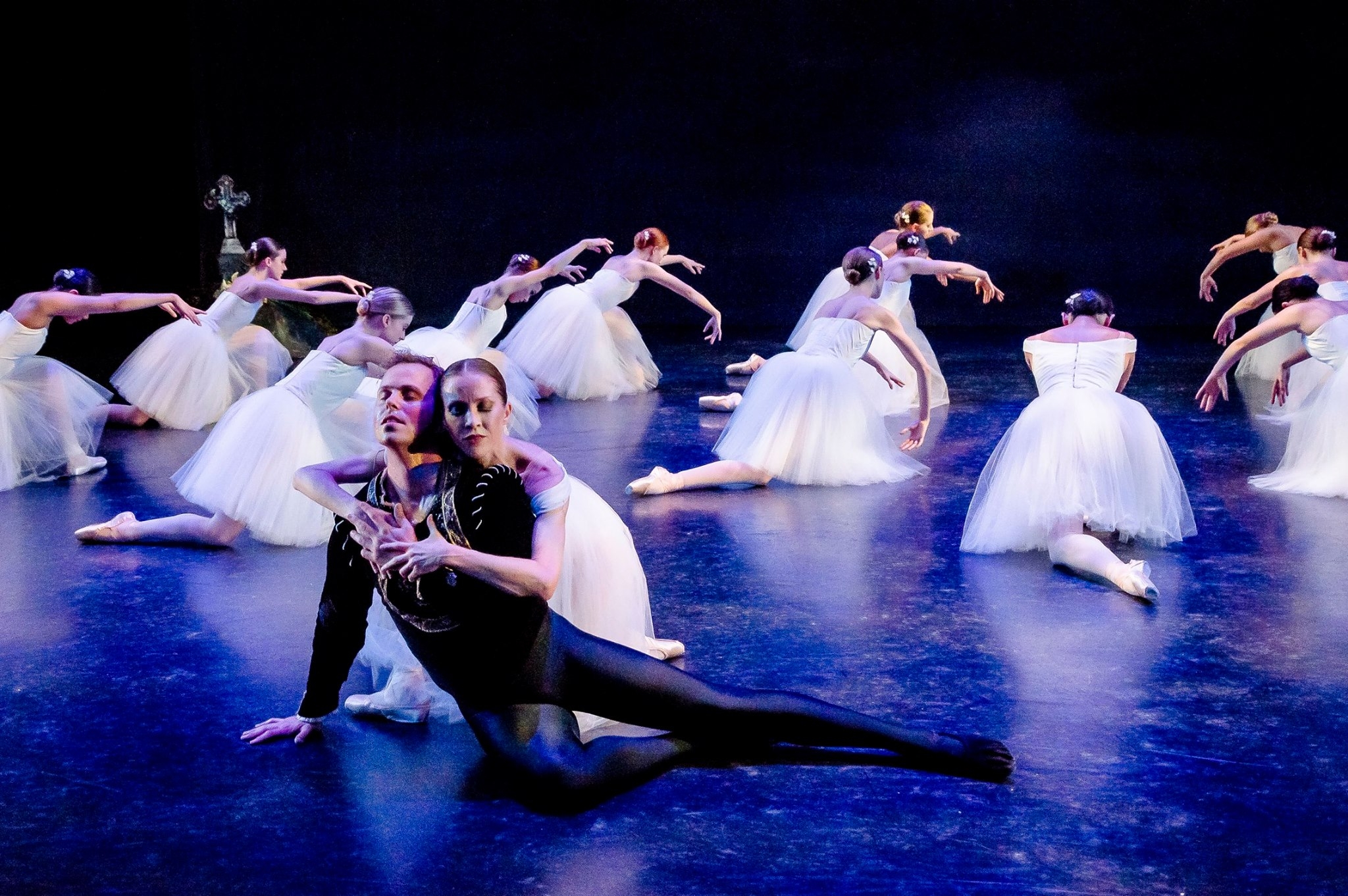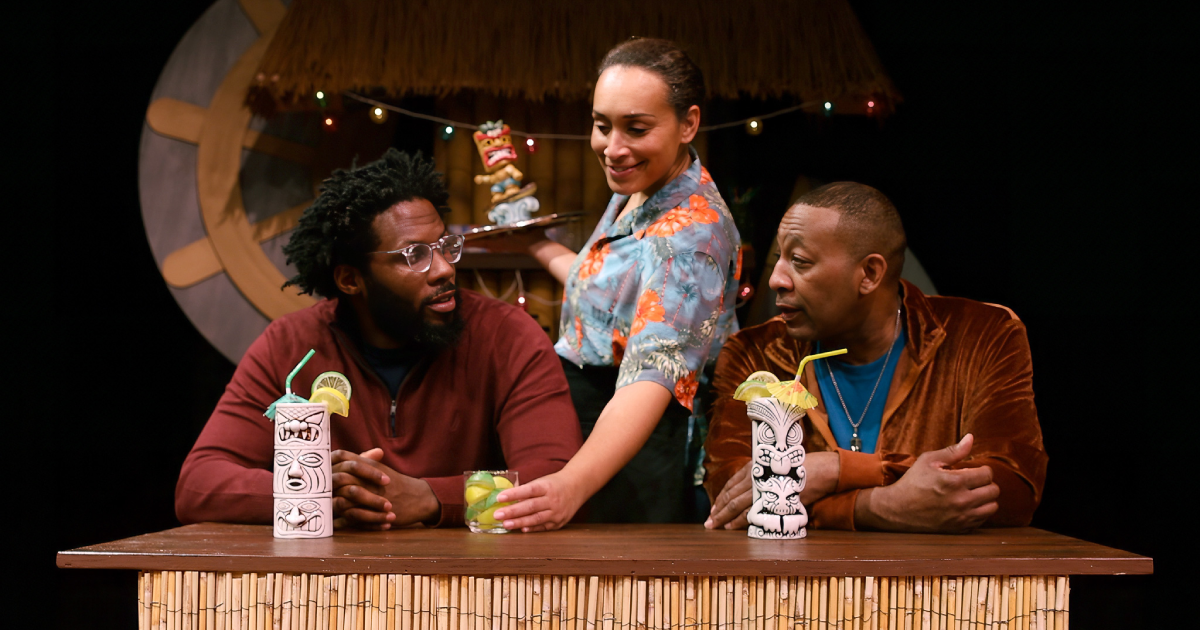The Grand Rapids Ballet’s 2017-2018 season opener, From Russia With Love, offers a soaring sampling of some of the greatest classical dance in the Russian style, and it was performed with a passion and grace that can only be interpreted as coming from the fire of love central to all great artists’ work. The love exchange evident in the Peter Martin Wege Theatre is profound; the loop from tradition to dancer to audience member is infinite and deeply satisfying.
It’s also a brilliant selection — to return to roots and grounding in tradition — for a magnificent company amid a deeply transitional year. After seven years, Artistic Director Patricia Barker, and after 16 years, Principal Dancer Dawnell Dryja, have both announced this is their last season with the company.
The program offers a wonderful variety of choreography, from a stunning and famous pas de deux from choreographer George Balanchine to lesser-known (yet no less celebrated) works, as well as highlights from beloved storybook ballets. It’s a beautifully sequenced program that presents the most exquisite, high-valence, technically demanding and astounding moments of larger works. In other words, From Russia With Love goes right for the jugular, gifting the audience with the very best moments of the very finest Russian ballets without any of the necessary tedium of a three-act ballet. The result is sure to wow dedicated ballet lovers and newbies to the art form as well.
The show begins and ends with exquisite pas de deux performed by Dawnell Dryja and Nicholas Schultz, who dance beautifully together and are individually at their peak as artists. With pristine technique and glorious emotionality they transcend the discipline of the body to create transformative works of art moving through space and time. It’s their astonishing technical skill plus their maturity as humans and artists that make for gasp-worthy performances.
This comes across in Tchaikovsky Pas de Deux, the opening piece celebrating Balanchine’s choreography to music originally intended for the third act of Swan Lake. Just as impressive is Giselle Act II, the phenomenal second act of the entire show with one of the most beautiful pas de deux in the entire repertoire of classical ballet, framed by tremendously exciting and moving corps work.
Lesser-known works include an impassioned, flashy wedding pas de deux from Flames of Paris — a Soviet-era Mikhailovsky ballet from 1932 recently revived in New York after having been neglected since the Bolshoi performed it in the 1960s — and the Pas de Dix from the third act of Raymonda, considered some of the greatest choreography in Russian ballet.
Staged by Laura McQueen-Schultz and Steven Houser, who also play the principal roles, this piece is full of bold royal characters, gorgeous lifts en attitude, and tremendous presentation with dramatic port de bras. McQueen-Schultz, who played the Queen of Hearts with great flair in last spring’s extraordinary Alice in Wonderland, shows yet again how magnificently she embodies the Queen archetype — in both commanding solos and pas de deux. She partners magnificently with all the military men who have their own stunning pas de quatre, while the four women, like little flowers blossoming into princesses who complement them, each offer a solo in which her unique personality shines through.
The Junior Company members also have their moment to shine in the Garland Dance from Sleeping Beauty in which eight young women en pointe and four girls in slippers sweetly perform excellent corp work from a few dreamy moments of a storybook ballet.
The music throughout was recorded, though richly filling the space of the theatre. Costumes are consistently elegant and relatively understated, with a variety of knee-length gauzy skirts and platter tutus as well as head pieces for the women where appropriate. Sets, lights and props are mostly minimal, and the larger effect of these stripped-down technical choices is to more fully draw attention to what truly matters here: the strength and artistry of these chiseled dancers, their terrific technique and musicality, and the way they interpret, transform and offer some of the greatest classical choreography in the history of dance.
The variety of choreography yet symmetry of style in From Russia With Love shows off the skilled artistry of this commanding company of exquisite dancers who embody Albert Einstein’s sentiment that “Dancers are the athletes of God,” as well as Martha Graham’s belief that “Great dancers are not great because of their technique, they are great because of their passion.”





